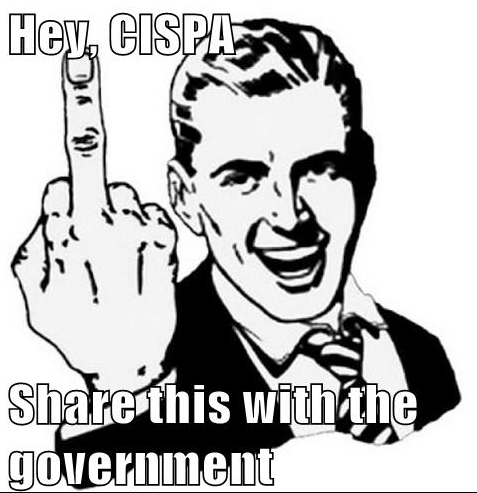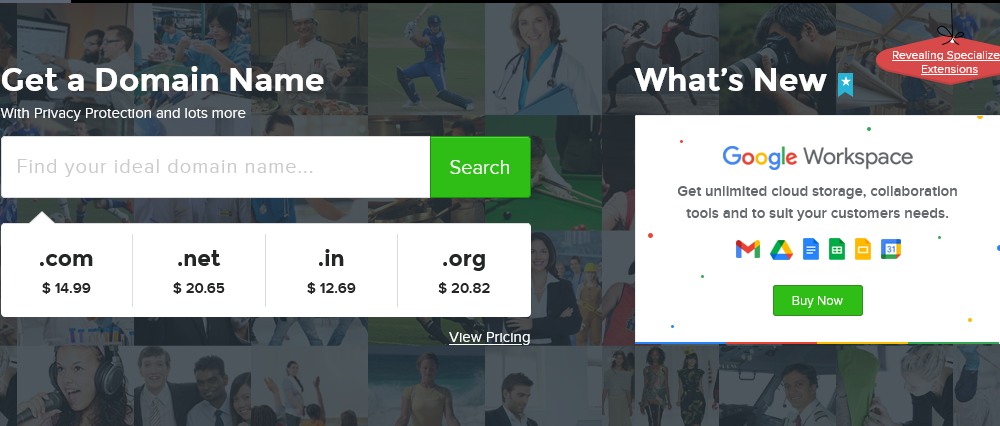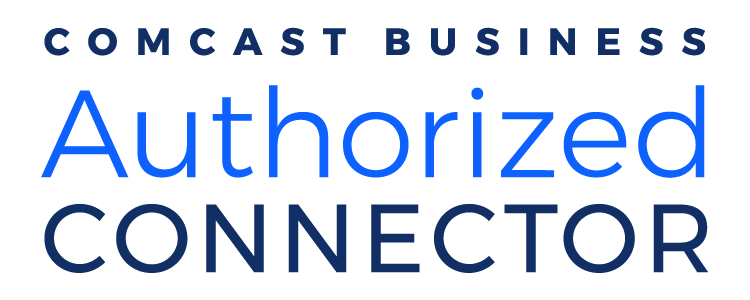Original Article By Cesar Garcia
Sources from CNET, ZDnet, etc.
For the past couple years the United States has been attempting to pass the CISPA bill which will authorize sharing of Internet traffic information between the U.S. government and certain technology and manufacturing companies such as; Google, Facebook, Twitter, Microsoft and Myspace. Some individuals saw CISPA as a second attempt at strengthening digital piracy laws after the Stop Online Piracy Act met huge opposition. CISPA will hit the floor either Today or Tomorrow, this bill has been so controversial yet no one understands why? Many Others are unaware of what's going on, So lets break it down:
- For those out of touch with current events concerning this, CISPA will allow private sector firms to search personal and sensitive user data of ordinary U.S. residents to identify so-called "threat information". Once identified this information will be shared other firms and the US government — without the need for a court-ordered warrant.
CISPA is controversial because it overrules all existing federal and state laws by saying: "Notwithstanding any other provision
of law," companies may share information "with any other entity, including the federal government." It would not, however, require them to do so.
That language has alarmed dozens of advocacy groups, including the American Library Association, the American Civil Liberties Union, the Electronic Frontier Foundation and Reporters Without Borders. In turn they sent a letter (PDF Provided below) to Congress last month opposing CISPA. It says: "CISPA's information sharing regime allows the transfer of vast amounts of data, including sensitive information like Internet records or the content of e-mails, to any agency in the government."
- Under a new amendment voted on earlier today in the U.S. House, U.S. companies would have been able to keep their privacy policies intact and their promises valid, including terms of service, legally enforceable in the future.

Rep. Pete Sessions (R-TX), who chairs the House Rules Committee, urged his colleagues to reject the amendment and in turn his colleagues did. All Republican members of the committee voted against the amendment despite a unanimous show of support from the Democratic membership.
Yet Republicans failed to get the amendment through by a 5-8 vote. This amendment would have weakened CISPA's position. Now it allows these private firms watertight legal immunity under CISPA to share their customer and user data with other firms as well as the U.S. government, by being "completely exonerated from any risk of liability," according to Rep. Jared Polis (D-CO). Now private sector firms have the right to hand over private user data, while circumventing existing privacy laws. Data such as; emails, text messages, cloud-stored documents and files, with the U.S. government, its law enforcement and intelligence agencies.
"We're disappointed that such a commonsense reform won't even get a vote, When Americans sign up for service with their phone company or their Internet provider they should be entitled to the privacy protections that the companies promise them. Giving companies legal cover to break their contracts with consumers is bad policy and a disservice to the American people." Will Adams, a spokesman for Rep. Justin Amash, a Michigan Republican who co-sponsored the amendment, told CNET earlier this evening.
"Congress should have been able to debate the amendment this week because it would ensure Americans' privacy rights", said Rep. Jared Polis, a Colorado Democrat and former Internet entrepreneur. That includes, he said, the rights of "users who have given their information to the company under the explicit assurance of the terms of use that it wouldn't be shared."
If the amendment had been adopted during the floor debate it would have allowed; e-mail providers, social networks and other companies to pledge not to share customers' confidential information with the National Security Agency, Homeland Security, or any other organization under CISPA -- and made that pledge legally enforceable in court. This amendment would have made it possible for several companies to ensure the safety of; users, subscribers and account holders data.
This vote came hours after a formal veto threat from the Obama administration (PDF Provided Below) on Tuesday, which cited privacy and other concerns about CISPA. A House floor debate is scheduled to begin tomorrow, which now will not include a vote on the amendment.
Meanwhile, the White House has not responded to an anti-CISPA petition that topped 100,000 signatures a month ago, and the president's recent signature on a cybersecurity executive order may mean the administration's position on legislation has shifted
House Intelligence Chairman Mike Rogers (R-Mich.), CISPA's primary author, responded to the veto threat as "flabbergasting."
"I do not believe the administration knows how to work with a legislative body," Rogers said during a meeting of the House Rules Committee. "We have come a long way on some of their points."
CISPA's advocates say it's needed to encourage companies to share more information with the federal government and, to a lesser extent, among themselves. A "Myth v. Fact" paper (PDF Provided Below) prepared by the House Intelligence Committee says any claim that "this legislation creates a wide-ranging government surveillance program" is a myth.
Yet where do major internet companies stand on a situation like this? Well Cnet has confirmed that companies executives such as; Google, Yahoo, Microsoft execs back CISPA through trade group but are taking no sides for the company as a whole. A tech trade group whose guiding lights include executives from Google, Microsoft, and Yahoo sent a letter to Congress this week in support of CISPA -- the Cyber Intelligence Sharing and Protection Act. The letter was from TechNet President Rey Ramsey and was addressed to the leaders of the House Intelligence Committee -- Rep. Mike Rogers (R-Mich.) and Rep. Dutch Ruppersberger (D -Md.). Ramsey's letter included the membership roster of TechNet's Executive Council, with names such as; Yahoo's Marissa Mayer, Google's Eric Schmidt, and Microsoft General Counsel Brad Smith. It says CISPA "recognizes the need for effective cybersecurity legislation that encourages voluntary, bi-directional, real time sharing of actionable cyberthreat information to protect networks," but it implies that further work may be needed.The letter commends the committee for providing liability protections to companies that would share data under CISPA and also commends them for making an effort to strengthen privacy protections legislation. This letter also stated "As the legislative process unfolds, we look forward to continuing the dialogue with you and your colleagues on further privacy protections, including discussions on the role of a civilian interface for information sharing."
CISPA is believed to be designed according to its supporters, to protect against foreign cyberthreats by allowing private companies to voluntarily share data with government intelligence agencies. This would eliminate fear of being taken to court over privacy issues for many companies. Yet several state that under existing federal law, any person or company who helps someone "intercept any wire, oral, or electronic communication" unless specifically authorized by law could face criminal charges, CISPA of course would overrule those privacy protections considering that no government warrant would be needed to excavate information.
Here's the text of Ramsey's TechNet letter, as published by The Hill:
April 10, 2013
The Honorable Mike Rogers
The Honorable Dutch Ruppersberger
U.S. House of Representatives
Washington, D.C. 20515
Representatives Rogers and Ruppersberger:
TechNet, the bipartisan policy and political network of technology CEOs that promotes the growth of the innovation economy, commends you for your work on cybersecurity and writes to express our support of H.R. 624, the "Cyber Intelligence Sharing and Protection Act of 2013."
This bill recognizes the need for effective cybersecurity legislation that encourages voluntary, bi-directional, real time sharing of actionable cyberthreat information to protect networks. We commend the Committee for providing liability protections to companies participating in voluntary information-sharing and applaud the Committee's efforts to work with a wide range of stakeholders to address issues such as strengthening privacy protections. As the legislative process unfolds, we look forward to continuing the dialogue with you and your colleagues on further privacy protections, including discussions on the role of a civilian interface for information sharing. The information technology industry has provided leadership, resources, innovation, and stewardship in every aspect of cybersecurity for more than25 years, as ultimately, innovation is the most important tool in America's cybersecurity toolbox. TechNet appreciates your continued attention to this important issue and the strong leadership that you have provided.
Sincerely,
Rey Ramsey
President & CEO
TechNet
Currently this is an issue that will remain up in the air, though we are glad that hopefully it will be concluded this week. In the meantime all we can do is wait and see both sides to the story. Here at Daedalus Teks we do not back CISPA but we still aim to further educate the general public about what can be passed that will affect general internet users. So now, we hold our breathe.
Below are a list of CISPA supporters and Op-poser's
Supporters
CISPA is supported by several trade groups containing more than eight hundred private companies, including the Business Software Alliance, CTIA – The Wireless Association, Information Technology Industry Council, Internet Security Alliance, National Cable & Telecommunications Association, National Defense Industrial Association, TechAmerica and United States Chamber of Commerce, in addition to individual major telecommunications and information technology companies like AT&T, IBM, Intel, Oracle Corporation, Symantec, and Verizon. Google has not taken a public position on the bill but is lobbying for it.
Opposition
- Russia Today, a Russian state-owned broadcast medium, was one of the first organizations to oppose CISPA, and was the first known source to use the phrase "Worse than SOPA".
- Tim Berners-Lee, inventor of the World Wide Web, expressed opposition to the bill stating, “[It] is threatening the rights of people in America, and effectively rights everywhere, because what happens in America tends to affect people all over the world. Even though the SOPA and PIPA acts were stopped by huge public outcry, it’s staggering how quickly the US government has come back with a new, different, threat to the rights of its citizens.”
- U.S. Representative Ron Paul (R-TX) has publicly opposed the bill calling it "Big Brother writ large." Cenk Uygur, from Current TV, backed the Representative's opinion and did a piece where he highlights one of Mike Rogers' speech about the bill to the business community. He also summarized the bill to his audience.
- 36 groups currently oppose CISPA with an addition of 6 groups as of April 21. The Electronic Frontier Foundation lists a growing list of opposition as well as a list of security experts, academics, and engineers in opposition of the bill. They also published the statement Don’t Let Congress Use "Cybersecurity" Fears to Erode Digital Rights.
- Opposition to CISPA includes more than 762,000 online petitioners who have signed global civic organization Avaaz.org's petition to members of the US Congress entitled "Save the Internet from the US".[40] Avaaz also has a petition to Facebook, Microsoft, and IBM entitled "The end of Internet privacy", signed by more than 730,000 people.
- The Center for Democracy and Technology (CDT) published a statement titled "Cybersecurity's 7-Step Plan for Internet Freedom". The CDT openly opposes the Mike Rogers bill based on these 7-step criteria. The CDT has also openly supported a competing bill in the house sponsored by U.S. Representative Dan Lungren (R-CA) that has yet to be reported by the committee.
- The Constitution Project (TCP) "believes cybersecurity legislation currently pending before Congress possess major risks to civil liberties that must be addressed before any bill is enacted into law."
- The American Civil Liberties Union (ACLU) has also issued a statement opposing the bill stating, "The Cyber Intelligence Sharing and Protection Act would create a cybersecurity exception to all privacy laws and allow companies to share the private and personal data they hold on their American customers with the government for cybersecurity purposes." As the statement continues, "Beyond the potential for massive data collection authorization, the bill would provide no meaningful oversight of, or accountability for, the use of these new information-sharing authorities."
- The Sunlight Foundation states, "The new cybersecurity bill, CISPA, or HR 3523, is terrible on transparency. The bill proposes broad new information collection and sharing powers (which many other organizations are covering at length). Even as the bill proposes those powers, it proposes to limit public oversight of this work."
- Demand Progress opposes CISPA, stating "The Cyber Intelligence Sharing and Protection Act, or CISPA, would obliterate any semblance of online privacy in the United States."
- Competitive Enterprise Institute joins with TechFreedom, FreedomWorks, Americans for Limited Government, Liberty Coalition, Al Cardenas, and American Conservative Union to write a letter to Congress. Competitive Enterprise Institute states, "Despite the bill's noble intentions, however, it risks unduly expanding federal power, undermining freedom of contract, and harming U.S. competitiveness in the technology sector." The Competitive Enterprise Institute lists 6 problems within the bill itself and how to fix those problems.
- Reporters Without Borders states, "Reporters Without Borders is deeply concerned with the Cyber Intelligence Sharing and Protection Act of 2011 (CISPA), the cyber security bill now before the US Congress. In the name of the war on cyber crime, it would allow the government and private companies to deploy draconian measures to monitor, even censor, the Web. It might even be used to close down sites that publish classified files or information."
- testPAC opposes CISPA stating "CISPA would effectively take the door off the hinge of every household in America, but lacks the tools necessary to distinguish whether there is a criminal hiding in the attic. Why surrender the core of our privacy for the sake of corporate and governmental convenience?"
- Mozilla, the makers of the Firefox Web-Browser, opposes CISPA stating, "While we wholeheartedly support a more secure Internet, CISPA has a broad and alarming reach that goes far beyond Internet security."
- The Association of Computing Machinery believes that "More effective information sharing in support of cybersecurity is a laudable goal, but CISPA is seriously flawed in its approach to PII. Better approaches to information sharing are certainly possible if privacy goals are also considered."
- IGDA, the International Game Developers Association is against this bill, urging Congress and the President to reject it saying, in part, "The version of CISPA which just emerged from the House Intelligence Committee does not address the privacy failings in the pervious version, which the White House wisely rejected. The bill still retains its dangerously over-broad language, still lacks civilian control, still lacks judicial oversight, and still lacks clear limits on government monitoring of our Internet browsing information. The House should vote against it."
PDF FILES:
{jd_file category==3}





























